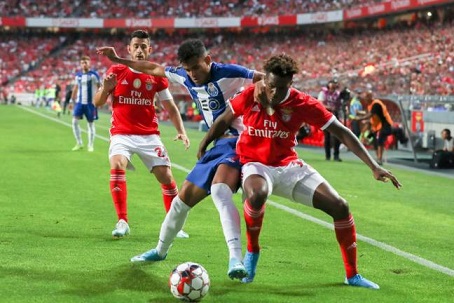 Among all the countries that play football around the world, Portugal is exceptional due to more than just being a country with a great history and skilful players; it has managed to advance economically, even in football. Besides the fame of the national team and world-class footballers such as Cristiano Ronaldo, the development of Portugal’s football industry reveals how economics, tactics, and the love for the game can interact in complex ways.
Among all the countries that play football around the world, Portugal is exceptional due to more than just being a country with a great history and skilful players; it has managed to advance economically, even in football. Besides the fame of the national team and world-class footballers such as Cristiano Ronaldo, the development of Portugal’s football industry reveals how economics, tactics, and the love for the game can interact in complex ways.
The rise of Portuguese football economics
The economic development of Portugal can be compared to its journey in football. In the past, Portugal had difficulties in matching funds with some of the strong teams in Europe. Nevertheless, well-thought-out investments and changes during the second half of the 1900s prepared the way for big changes.
Investment in youth development
Portugal’s investment in youth development has greatly contributed to the progress of its football. The famous youth system of Sporting Clube de Portugal, for example, is a talent factory that gave birth to great players, including Cristiano Ronaldo and Luís Figo, among many others. The focus on nurturing young talent not only fuels Portugal’s domestic leagues but also serves as a lucrative export, with top talents commanding hefty transfer fees.
Globalisation and branding
Portuguese clubs have taken advantage of globalisation by using their brand value to go international. For instance, Primeira Liga clubs like FC Porto, SL Benfica, and Sporting CP have capitalised on international markets, securing sponsorships, broadcasting deals, and commercial partnerships. For instance, partnerships with gambling companies that provide sports betting and gaming options like Sugar Rush have not only brought financial benefits but have also increased visibility and engagement with diverse audiences, showcasing the broad appeal of Portuguese football beyond traditional sports partnerships.
Transfer market dynamics
The Portuguese transfer market has become a key driver of footballing economics. The country’s clubs have cultivated a reputation for discovering and developing young talent, selling players at significant profits. This transfer business not only injects funds into domestic clubs but also fuels the broader footballing ecosystem, creating a cycle of investment, talent development, and reinvestment.
Television rights and broadcasting
Television rights form a crucial component of footballing revenue, and Portugal is no exception. The sale of broadcasting rights, both domestically and internationally, provides a steady stream of income for clubs and leagues alike. Moreover, the emergence of digital platforms has opened up new avenues for revenue generation, with streaming services and online content becoming increasingly lucrative.
Infrastructure and stadium development
Portugal’s footballing growth has been influenced by investment in infrastructure. The modern stadiums, which are well-fitted with the current facilities, not only improve the experience of the supporters but also ensure that Portugal is able to host some of the most high-earning games, like the European Championship in 2004 and intercontinental tournaments (Champions League). By investing in such infrastructures, there is a positive impact on the economy of sports as it leads to employment creation and stimulation of the surrounding local economies.
Challenges and opportunities ahead
Despite its progress, Portuguese football faces both challenges and opportunities in the evolving global landscape. Economic disparities between the Primeira Liga and the wealthiest European leagues remain, requiring innovative strategies to bridge the gap. Additionally, the COVID-19 pandemic has underscored the importance of financial resilience and adaptability in the face of unforeseen crises.
Thanks to its rich footballing tradition, commitment to youth development, and strategic economic initiatives, Portugal has all it takes to keep climbing in the football world. The application of clever economics in Portugal has strengthened the country’s football system for continued expansion, making it a strong competitor globally for years to come.

